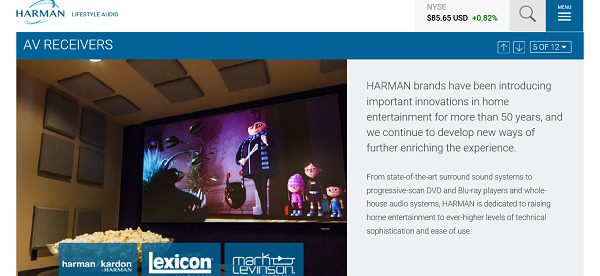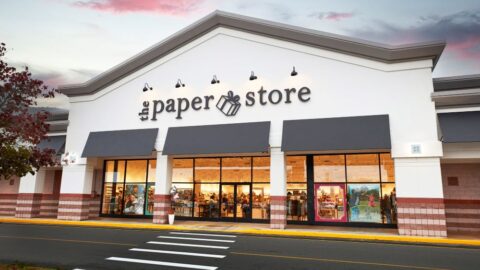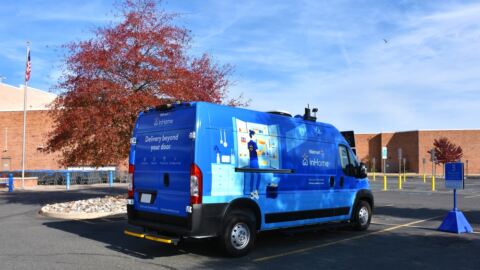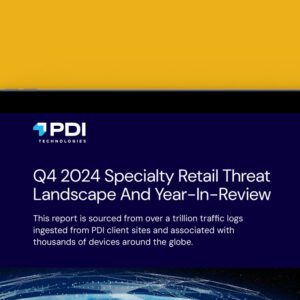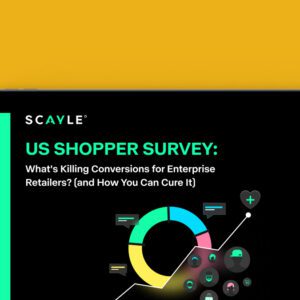Until fairly recently, Harman International suffered from something of an identity crisis. If consumers knew the name at all, they associated it with high-end audio brands such as Harman Kardon and JBL. Yet the $7 billion company also is a leader in automotive technology, including GPS and navigation systems, as well as professional audio systems and even the ultra-hot Internet of Things (IoT) category.
Delivering a unified message about Harman — not to mention supporting cross-channel sales for a wide range of products— was a significant challenge not only because of the company’s low profile, but also the scattered state of its digital presentation and supporting infrastructure. In 2014, Harman was operating 13 different e-Commerce systems, including separate platforms for seven global operating areas.
“Each region was ‘doing its own thing,’ which meant that there was a lot of reinventing the wheel going on in different places,” said Jarid Lukin, Vice President of Global Digital Engagement for Harman International, in an exclusive interview with Retail TouchPoints.
Advertisement
“We realized approximately two years ago that we weren’t meeting our own standard for a strong digital experience,” Lukin added, so Harman decided to amp up its investment in e-Commerce by implementing a common SaaS platform from Demandware.
Rapid Rollouts Of Unified Platform
Harman tackled its largest and most mature market, the U.S., first. Positive results from this deployment encouraged Harman to move on to EMEA, which presented its own set of complexities.
“We rolled this out to 11 countries, with seven languages and nine different payment methods, all within a four-month period,” said Lukin. “The speed and agility of the solutions are big positives for us.” Asia is next, including Australia, New Zealand, Japan and Korea.
The new platform also improved performance speed of Harman’s sites, which Lukin believes has helped boost sales: “Even performance improvements that aren’t perceptible [to shoppers] can have an impact on conversion rates.”
Other key success factors include:
• The Demandware Site Genesis core provides “e-Commerce in a box” that can also be customized to ensure that it’s presenting a brand-appropriate experience;
• Experiences and best practices gleaned from Demandware’s community of 300+ customers; and
• Partnering with a global third-party payments processor, Adyen, which provides local relationships with payment gateways and acquirers in multiple regions.
While direct e-Commerce sales are a relatively small portion of Harman’s business — which includes selling through retailers such as Best Buy and marketplaces like Amazon — online sales and support are “a key part of our digital strategy,” said Lukin. “For example, we’ve invested more in content, providing details about our brands and giving customers reasons to upgrade.
“My job is to grow all sales, and I’m responsible for three key buckets to do that: e-Commerce, digital marketing and social media,” Lukin explained. “That also includes a lot of internal selling, to help our people get over their fear of selling direct to consumers. But we believe a strong digital experience will lift sales in all channels.”



